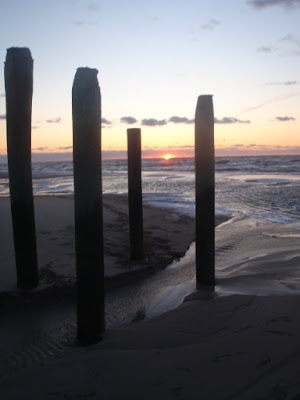
I have been reduced to stacking up chairs on desks, then knocking them down.
I'm up on the third floor--the whole science wing reverberates when I knock down the furniture.
I stack up the desks--energy in.Over and over and over again, I implore my sophomores to think like "kidneygartners." I don't want fancy words. I don't want "right" answers. I don't want to hear that energy is "the ability to do work."
I break the bonds with a shove--activation energy.
The desks cascade down, unleashing noise and heat and movement and chaos--ΔG.
Some laugh, now and then one is near tears.
I'm confused!
Good! Now we're getting somewhere.
Occasionally I have story time. It's always the same story.
I sit in the middle of the pods. (The students form their own pods of desks at the start of every period. 30 seconds of chaos saves me hours of headaches--I do not have Ann Landers' talents, and larval humans show a remarkable political ability to arrange themselves in minimally disruptive arrangements. I could use some old tennis balls, though....sliding desks make a lot of noise.)
I walk along the class timeline. Humans (just a blip, really)--dinosaurs--plants--bacteria--water--Earth's formation--10 billion more years--Big Bang.
The Big Bang, of course, makes no sense. None. The students get that we have evidence that the universe is expanding. They get that galaxies are farther apart this week than they were back before Hallowe'en. And they grasp why some physicists came up with the model.
But it's only a model, a mythology, and an incomprehensible one at that.
I tell the story over and over again. I emphasize that it is, indeed, a story, told under certain constraints.
And then I topple the desks again.

***
We exist because the sun decays.
(Second Law of Thermodynamics)
We exist because the sun decays.(Laws are what we observe, consistently, persistently--no explanation needed.)
We exist because the sun decays.(No worries, the good news is we'll all be dead before the sun gasps its way into a red giant.)
We exist because the sun decays.
(No, I can't answer that--that's a religious question....)
***
Have you spent much time talking to 5 year old children? They'll believe anything but they'll question everything.
My sophomores won't believe everything, but they believe the world will end in 2012, mostly out of convenience.
They won't, however, question much, at least not in school. And that's our fault.
And again I scream "STOP THINKING LIKE SOPHOMORES AND START THINKING LIKE KIDNEYGARTENERS!"
Less than 100 years ago, Edwin Hubble made a pretty convincing story that Andromeda is not part of our galaxy, that stuff existed beyond our own Milky Way.
This was (and remains) a big deal.
And yet we teach the Big Bang like we teach The Great Gatsby, which, coincidentally, was published the same year Hubble made his move.
According to the Big Bang model (or myth or theory), something happened about 14 billion years ago.
The state of New Jersey states that I must teach that "according to the Big Bang theory, the universe has been expanding since its beginning, explaining the apparent movement of galaxies away from one another."
Read that again.
It's religion. I say as much in class. And I'm done with it.
That we even pretend to separate biology from physics from chemistry at the adolescent level just shows how confused we are.
Most of my kids have no idea how to generate electricity. This week I will bring in a hand-cranked generator, and the boys will shock themselves as the girls wonder how humans ever reproduced at all.
I'm not supposed to do this. I am supposed to teach biology. I can't teach biology if the kids have no idea about the First and Second Laws of thermodynamics. If cranking a magnet in a coil of wire hard enough to transform kinetic energy into the electrical sort strong enough to make sophomore boys squeal makes no impression, no sense pretending we can teach science.
But it will make an impression. It always has. Not for everyone, not all the time, but for most.
Because we're human, and innately curious.
And so long as we remain human and innately curious, I will enjoy teaching, at least until the 2nd Law does me in, as it will.
Have you spent much time talking to 5 year old children? They'll believe anything but they'll question everything.
My sophomores won't believe everything, but they believe the world will end in 2012, mostly out of convenience.
They won't, however, question much, at least not in school. And that's our fault.
And again I scream "STOP THINKING LIKE SOPHOMORES AND START THINKING LIKE KIDNEYGARTENERS!"
(Yes, I really say "kidneygarteners"--I am lousy at German....)
***
Children like their myths written in stone. We all do. It's why science can suck big time when we pay attention.Less than 100 years ago, Edwin Hubble made a pretty convincing story that Andromeda is not part of our galaxy, that stuff existed beyond our own Milky Way.
This was (and remains) a big deal.
And yet we teach the Big Bang like we teach The Great Gatsby, which, coincidentally, was published the same year Hubble made his move.
According to the Big Bang model (or myth or theory), something happened about 14 billion years ago.
The state of New Jersey states that I must teach that "according to the Big Bang theory, the universe has been expanding since its beginning, explaining the apparent movement of galaxies away from one another."
Read that again.
It's religion. I say as much in class. And I'm done with it.
***
That we even pretend to separate biology from physics from chemistry at the adolescent level just shows how confused we are.
Most of my kids have no idea how to generate electricity. This week I will bring in a hand-cranked generator, and the boys will shock themselves as the girls wonder how humans ever reproduced at all.
I'm not supposed to do this. I am supposed to teach biology. I can't teach biology if the kids have no idea about the First and Second Laws of thermodynamics. If cranking a magnet in a coil of wire hard enough to transform kinetic energy into the electrical sort strong enough to make sophomore boys squeal makes no impression, no sense pretending we can teach science.
But it will make an impression. It always has. Not for everyone, not all the time, but for most.
Because we're human, and innately curious.
And so long as we remain human and innately curious, I will enjoy teaching, at least until the 2nd Law does me in, as it will.
